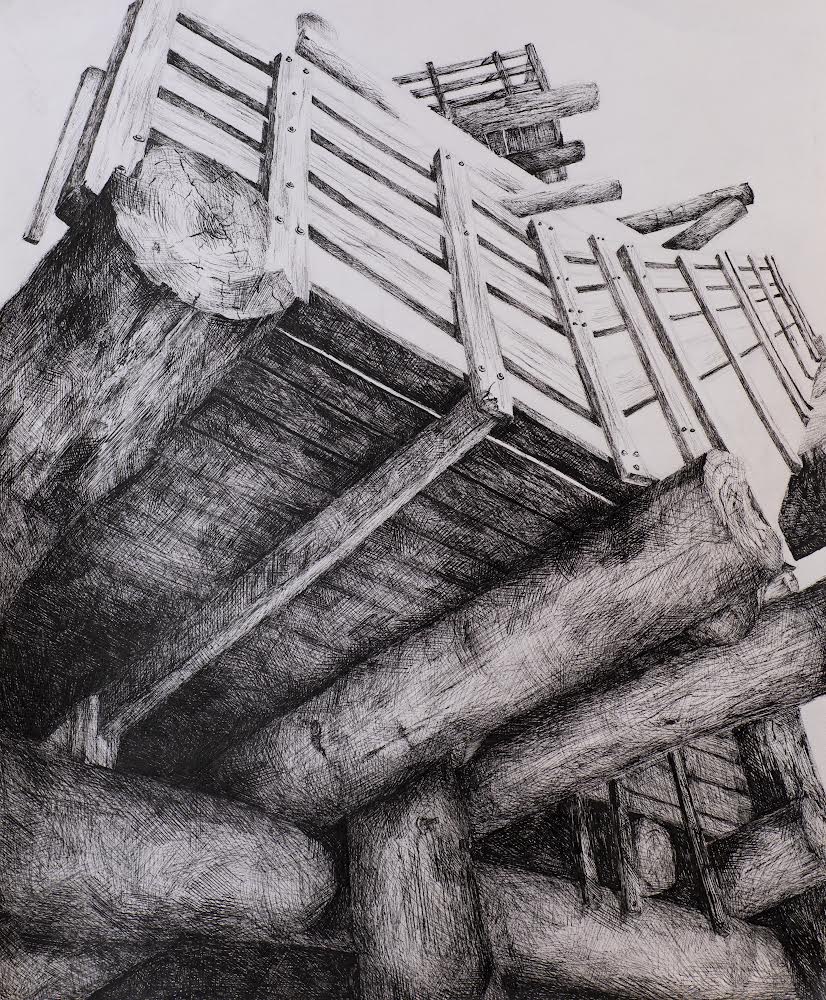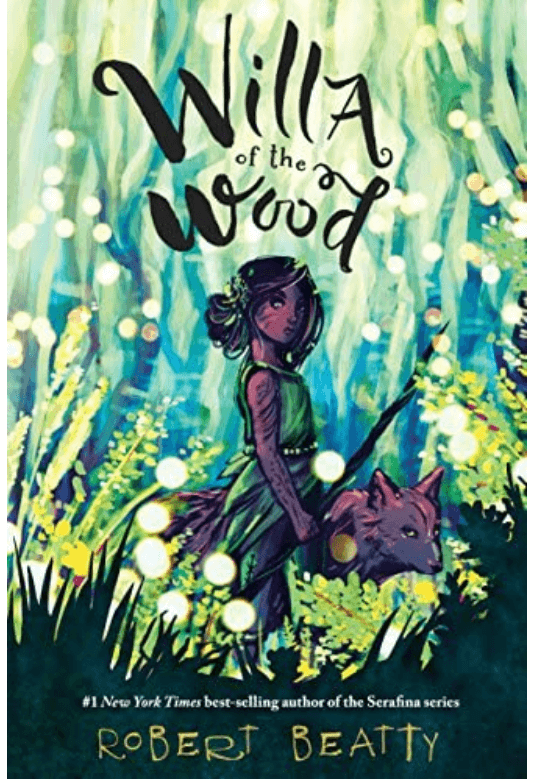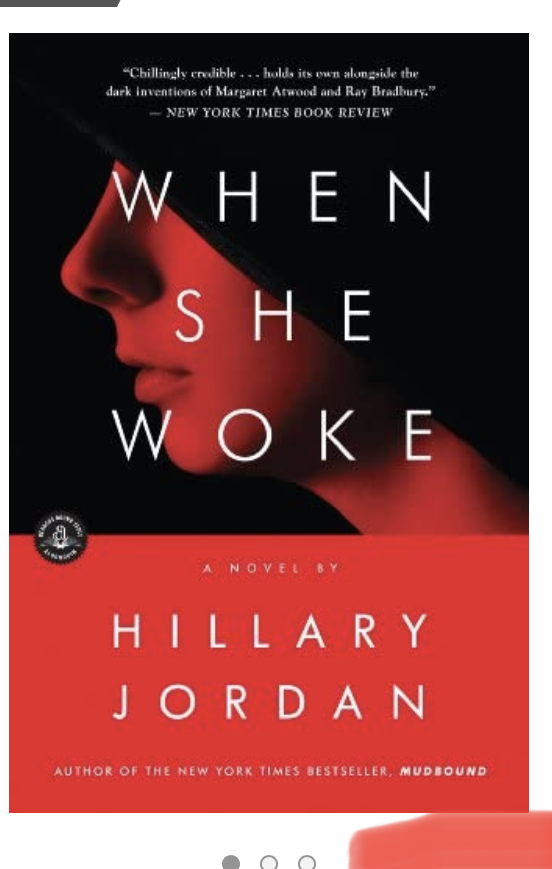
Elizabeth is a high schooler based in Texas. In her free time, she enjoys reading fantasy novels and baking banana bread.
Literary Journal for Young Writers
By Elizabeth Lei
By Julia McCarthy
 Robert Beatty fans will not be disappointed in his new novel Willa of the Wood. He sticks to his themes about the importance of having family and friends as he writes about Willa, who has neither.
Robert Beatty fans will not be disappointed in his new novel Willa of the Wood. He sticks to his themes about the importance of having family and friends as he writes about Willa, who has neither.
Willa finds herself alone with a clan that doesn’t care about her and humans who try to kill her, but just when she feels the most alone, the forest helps Willa, and she ponders one kindness that contradicts everything she’s learned. All the events steadily build to the climax where choices are harder than ever, and Willa has to decide if she should do what’s right even if it will hurt her in the process.
Beatty’s writing is rich with sensory details about the Great Smoky Mountains, Willa’s home, with its gigantic mountains, flowing rivers, still lakes, and lush forests. Beatty also compares nature to people and man-made tools, like when he writes that people are alike to wolves because they both hunt and kill what they need to survive. Willa also idolized the wolves because of the way they work together. She longs to be part of their pack and hunt alongside the wolves.
There are many secondary characters who shape Willa’s life. Willa learned the most from her grandmother who taught her the old ways of their people and how to use her powers in good ways. The leader of Willa’s clan, the padaran, taught Willa a lot, too. Most of his teachings were wrong, but they influenced Willa’s decisions since she trusts him.
The plausible dialogue between Willa and those characters shows Willa’s age and curiosity as she asks many questions and wonders about her place in the world around her.
Beatty writes about so many themes as Willa wanders the woods, but the most important one is about having a family and friends to guide you and support your decisions. Each time reading Willa of the Wood reveals more of Beatty’s themes.
Beatty’s usual magic is included which means Willa of the Wood is a fantasy book. Much like the Serafina series Beatty wrote, myths become reality, and Willa has some magic of her own.
The beautiful scenery mixed with brilliant themes make this novel one of the best. Lovers of the Serafina series will appreciate and enjoy Willa of the Wood because of the main characters’ many similarities, like their love of nature and forests and their longing for adventure. Serafina even makes an appearance in the novel, so if you like Serafina or if you want to disappear into a twelve-year-old girl’s mind with the beautiful scenery of the Great Smoky Mountains, then read Willa of the Wood.
By Maria Polizzi
 Imagine this, crime is not punished by prison, but by changing the color of the prisoner’s skin, and public shame. This is what Hannah faces in When She Woke by Hillary Jordan. Hannah had been changed to the worst color imaginable. A color representing murder. She is red.
Imagine this, crime is not punished by prison, but by changing the color of the prisoner’s skin, and public shame. This is what Hannah faces in When She Woke by Hillary Jordan. Hannah had been changed to the worst color imaginable. A color representing murder. She is red.
Hannah finds herself in a difficult situation in When She Woke. Love has driven her to change the course of her life. Maybe forever. Worst of all, she is caught. Now she has to live her life as a red.
Hillary Jordan tackles themes of love, loss, and the weight of your choices in When She Woke by using colors to represent crime and discrimination. Some of the best things about this novel are its sensory details, such as describing what skin changing feels like. It is paced very fast, and the characters all go through changes in the book as they face different problems.
The genre of this book is science fiction and is set in a futuristic United States. Hannah is from a small town in Texas, a very Christian community.
Readers will be taken on a journey of self discovery with Hannah as she grows and matures. This is a story that any teen will enjoy, If you wants a story that creeps you out, and makes you think, pick up When She Woke at the nearest library.
Maria Polizzi is a high school student, and this is her third publication. She found she enjoyed writing two years ago, and it is something she plans to continue doing as she moves forward in her education.
By Tara Prakash
Yesterday, our English teacher told us that phrases are incomplete sentences and independent clauses are complete, standalone sentences. She gave us an example that day, scrawled it on the board, the chalk raking against the surface in a way that shaved through me and made my insides coil.
I’ve changed.
She wrote this on the board, these two words, and told us to identify whether this was a phrase or an independent clause. I shot up my hand. Phrase, I called out.
She smiles tightly through white teeth arranged so perfectly I wonder if she got dental surgery. I wonder how expensive that was. I wonder why she’s teaching at this school if she has enough money for dental surgery. If I had as much money as she did, I’d already be on a bus out of here.
No, you’re wrong, she says and her sharp voice yanks me back to the chipped walls, the crowded desks, the stench of sweat and mint gum stuck in the air. It’s an independent clause. The class snickers and I want to glare at them, but instead I sink deep in my seat, the soft fabric of my jeans sliding down the metal chair until my torso is slumped under the desk and only my chin rests on the cold plastic table. Sit up, she says. I don’t. I slump further down, until I’m basically lying down on my chair. It’s an uncomfortable position, and the hard, icy metal of the seat rods press into my shoulder blades but I don’t sit up.
The teacher looks at me for a moment, and then turns away. I’m not surprised. Everyone gives up on me at some point.
I look back to the board. The words are still there, unforgiving in their careless scribble. I’ve changed. It seems like there should be more. I’ve changed isn’t enough. It’s never enough. There has to be more.
I think back to the evening before, when I walked into the jewelry store and slipped an emerald necklace into my hoodie pocket. The teenage cashier, lost in her phone, didn’t notice a thing. When I went back outside to the chilling winter air, I fingered the sharp facets of the emerald. I wanted to yank it out of my pocket and drop it in the sewage drain. I looked at the silver chain in my hand, the evening sun twisting it into a kaleidoscope of color. It felt like a gun.
Even more than the necklace, my thoughts scared me. If I didn’t watch out for myself, who would?
I’ve changed. I have changed. Or maybe I’m changing. I didn’t drop the necklace into the drain. But I thought about it. I almost let go. And next time, maybe I will.
I’ve changed’ should be a phrase. It’s incomplete.
Tara Prakash is a sophomore at Sidwell Friends School in Washington, DC. Her work has been recognized by the Daphne Review, the New York Times, Bow Seat’s Ocean Awareness Contest, and other literary journals and magazines. She has won a national gold medal along with 5 Gold Keys, 7 Silver Keys, and 5 Honorable Mentions in the Scholastic Art and Writing Awards. She received an honorable mention for a poem in the Gabriela Minstral Poetry Contest and was a panelist in Writopia’s Essay Conference. Along with flash fiction, she also enjoys writing creative non-fiction essays and poetry.
By Lynne Inouye
In between swaths of clouds, where space meets sky and Earth fades from view, a clock lays—ticking.
Its gears stretch for miles in a sea of gleaming bolts, and rust flakes underfoot. There is the groan of metal in the air—the gasping breath of ancient machinery. It is a familiar tune to the Timekeeper. He shuffles across moving cogs with light, practiced feet.
As he walks, a distant shape emerges from the cloud cover. The second hand–lurching closer, pausing, struggling on again. The hour is just past eight, the minute stretching off to six; his shift is close to being over, the Timekeeper notes. Thank God. At times, he crouches near interlocking gears or examines the great width of a clock hand, but there is not much to be done at this hour. And he is only one person, barely a speck of dust against this grand design.
The second hand drags on, nearly upon him, and he ducks to avoid its path. Balanced on a spinning gear, the Timekeeper is mindless of the dizzying drop–the emptiness that reaches to envelope him. Time feels almost slower than before. The whine of metal vibrates something deep in his chest as he watches the start-stop-start of the clock, and with a scowl, he rubs at his knees.
Blasted thing. Piteously groaning, the noise of the clock is practically too much to bear. The second hand staggers back and forth like some massive, injured thing, and the Timekeeper blinks, shifting closer.
He does not stand–it is a few feet from him now. But the clock itself seems to fight it, gears pushing and pulling, with rust like fallen blood. He squints. The Timekeeper has worked his job for forty years, but never has he seen something quite like this. Broken cogs, yes–oiling and soothing little aches and pains, but this–
The second stretches. His knees ache from crouching. And with a striking sigh, the churn of time stops dead.
The Timekeeper stares. Cloud is thick in front of him, but the sight, the silence, speaks true. The clock has stopped. The gear he’s on is motionless while the world holds its breath, and a hum builds. The smell of iron builds with it–it is raining, crying, red as it turns 8:32.
The clock shudders, and then the second hand resumes its path. Only–
It is traveling backward, now.
The Timekeeper rubs his eyes, bewildered. His tools are small at his side, his hands calloused, but not skilled. This is above his pay grade. And he is not affected, so he only turns away as the world reverts–as the cries start from below.
Lynne Inouye, 17, is a queer fiction writer with an interest in all things unnatural or otherworldly. She runs her school newspaper and enjoys acting, spending time with her cat, and using far too much imagery.
By Dante Antonio
Everyone has a mother somewhere—it seems a safe enough assertion. But there is no mother at dinner with us. And one is left to wonder: What about the mothers of Meetinghouse? What about the evaporated mothers, the disintegrated mothers? What about the cremated mothers, spread and fractured throughout the ocean, through the sea? (The Sea, the Sea.)
I remember very little of my mother. It seems a false comfort to imagine her Somewhere. And like my children, she has never been a guest at my table.
I will admit I do not know what suffering my mother endured. Or where she is hidden so well that I’ll never know the place I cannot find her. But there is one picture that belonged to my father. And since he died it’s belonged to me.
In the frame: an empty vase on a simple rectangular table—We appear to be in the kitchen—a window behind the table; Dusk—I’ve imagined the vase’s color to be blue—a woman sitting at the table’s edge, staring at the vase, her hands blurred; and nothing else on the table.
The last time I looked at that photo it fell apart in my hands, and I spent many hours that day trying to put my mother back together, before I realized too many pieces had already blown out the window, off to sea. (The Sea, the Sea.)
Dante Antonio (@dante_s_antonio) is a musician, writer, and actor based in Brooklyn, NY. He writes plays and poetry, fiction and non, and is spending quite a bit of time these days researching for a novel. He’s also exploring the worlds of microtonal and electronic music (setting some of Eliot’s poetry). You can find his literary work in Sheila-Na-Gig Online, Blue Marble Review, and New Note Poetry.